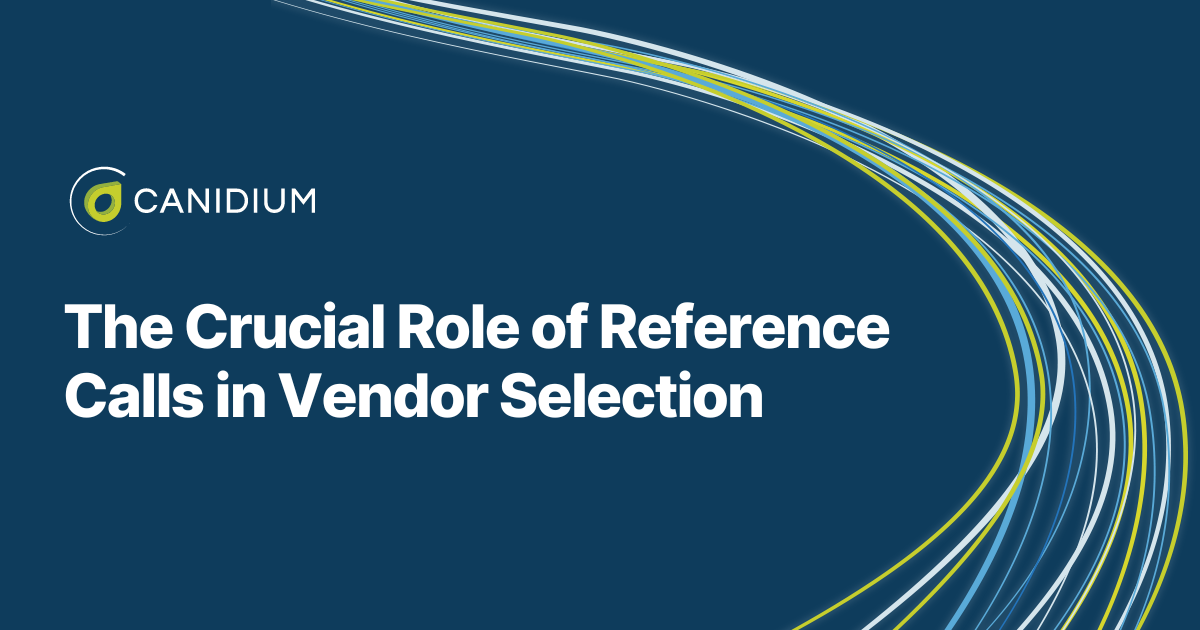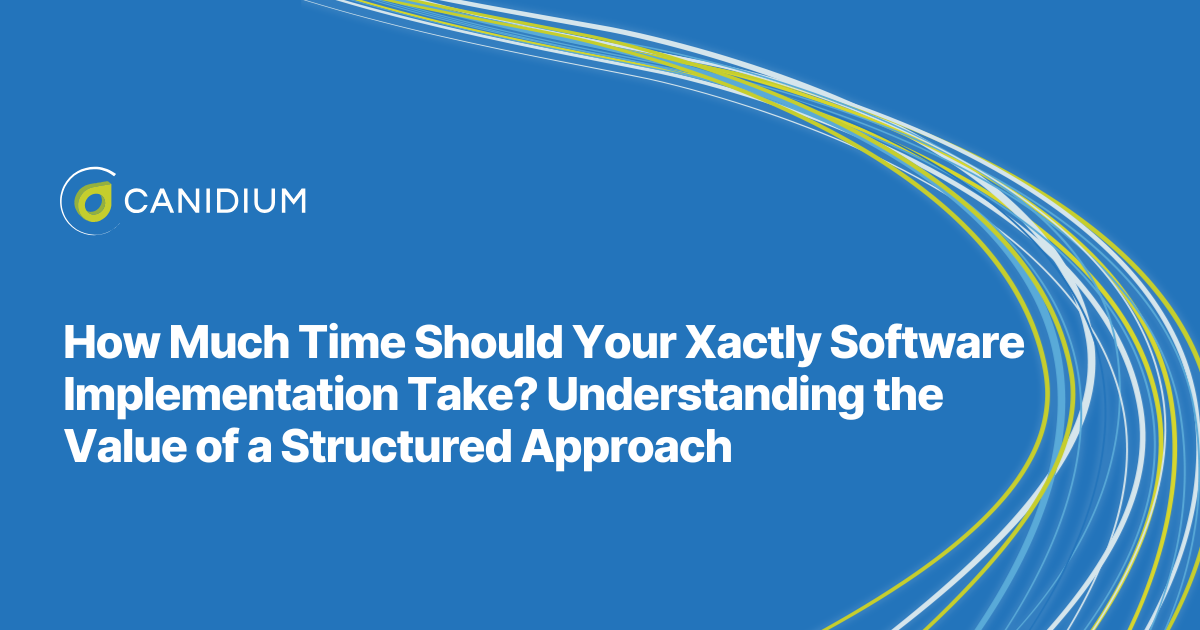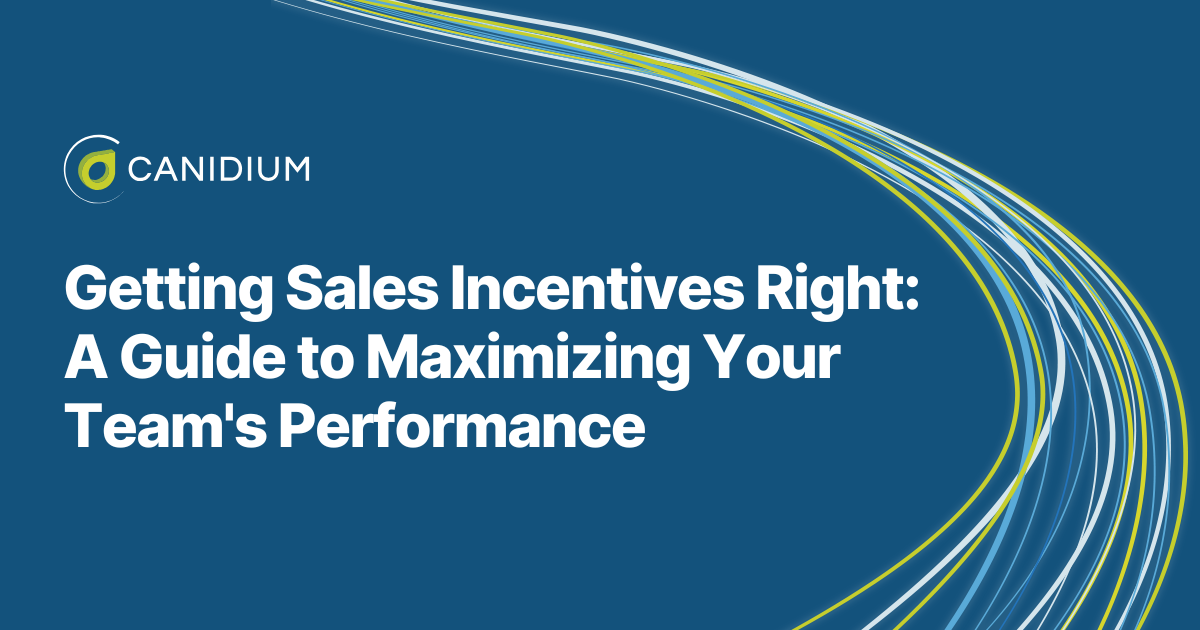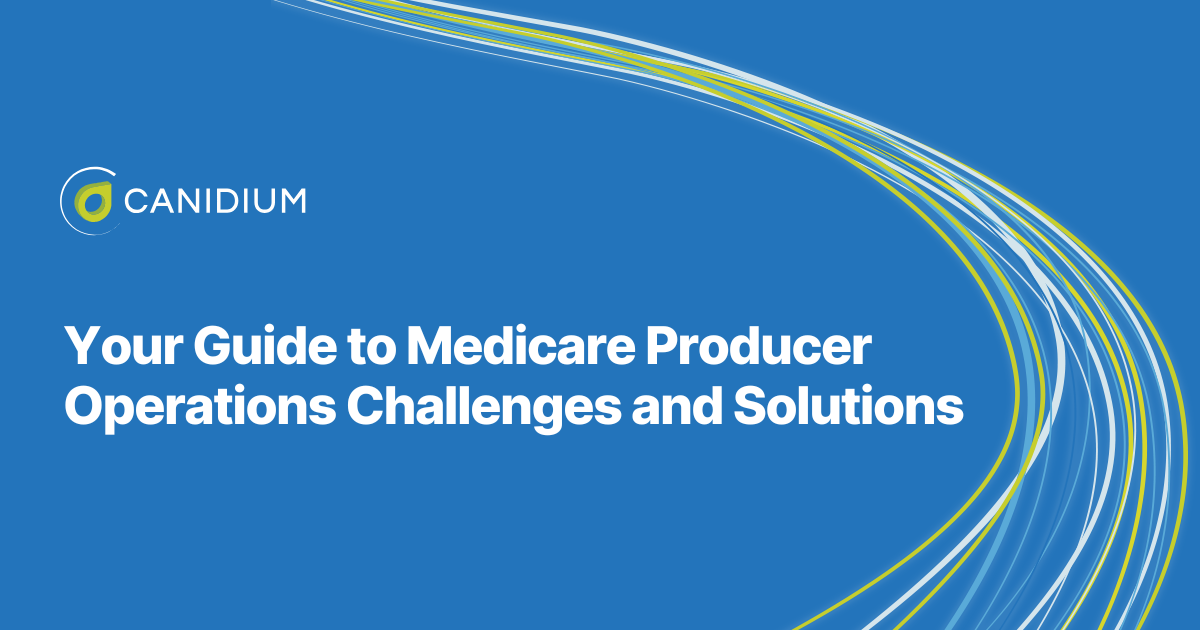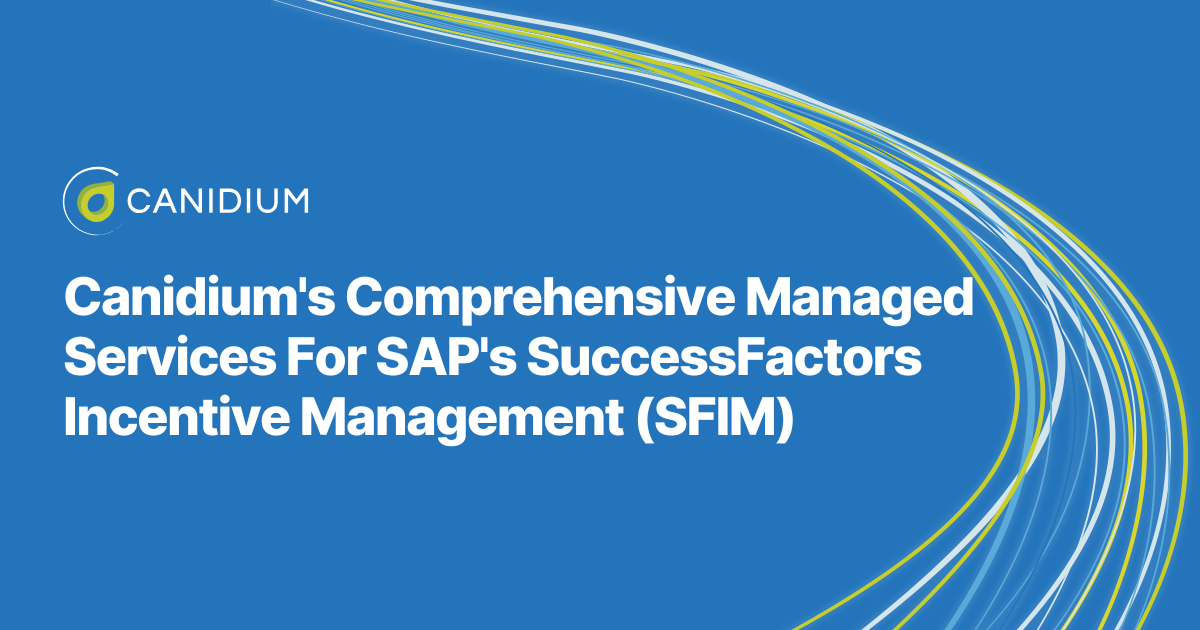Reference calls can seem like a tedious step in software implementation (SI) partner selection, but at Canidium, we believe they are essential. Software implementation firms often present their best potential services during evaluation. But during reference calls, you can discover what it is like to work with this vendor.
We encourage every potential client to call our references. We have been implementing software solutions since 2008, so we have various them. It is often a sign of potential problems if an SI partner cannot provide relevant references.
After reading this article, you will understand:
- The benefits of reference calls
- The steps involved in the reference call process
9 Reasons Reference Calls Shape Decisions in SI Partner Selection
When selecting a software implementation (SI) partner, nothing speaks louder than real-world experiences. Reference calls provide invaluable insights, offering a firsthand account of organizations that have worked with the vendor you're considering.
This section delves into the benefits of conducting meaningful reference calls:
Validation of Vendor Claims
Vendors artfully present their strengths and successes through marketing endeavors and reference calls offer a reality check. Hearing directly from those who have worked with an SI partner allows you to validate their claims, offering an independent perspective that cuts through the marketing haze.
Identification of Potential Challenges
Real stories paint a comprehensive picture. Reference calls are a platform for organizations to share the challenges and obstacles faced during the implementation journey. This candid sharing fosters a balanced view, enabling you to anticipate potential hurdles and assess the vendor's problem-solving capabilities.
Communication and Collaboration Assessment
The success of a software implementation often hinges on effective communication and collaboration. Reference calls provide a unique window into the vendor's communication style, responsiveness, and approach to collaboration. Understanding how the vendor interacts with clients during this critical phase is foundational for successful collaboration.
Timeliness and Reliability Confirmation
Timely implementation and reliable delivery of software are linchpins in project success. References can shed light on the vendor's adherence to timelines and delivery commitments, offering crucial insights that help verify the vendor's reliability and commitment to meeting project milestones.
Post-Implementation Support Evaluation
Assessing the vendor's commitment to post-implementation support is indispensable for the sustained success of your software. Reference calls open a dialogue to explore the vendor's responsiveness to ongoing issues, maintenance needs, and the quality of support provided beyond the initial implementation phase.
Tailored Insights for Your Industry
Industries vary in nuances, requirements, and challenges. Reference calls from organizations that operate in a similar or related sector, provide industry-specific insights. Understanding how the vendor's solutions align with industry needs adds a layer of specificity to the evaluation process.
Risk Mitigation
The experiences of those who have gone before offer a roadmap to identify potential risks and challenges. This proactive approach, facilitated by reference calls, empowers organizations to make informed decisions and implement risk mitigation strategies before challenges impact their own implementation.
Decision Confidence
Confidence in decision-making is a byproduct of a comprehensive understanding of the vendor. Reference calls contribute to this confidence by offering firsthand accounts beyond the polished sales pitch, providing a genuine and unfiltered perspective on the vendor's capabilities and performance.
Customized Decision-Making
Organizations are unique, each with its own set of needs and concerns. Reference calls facilitate customized decision-making by allowing inquiries tailored to specific requirements and goals. This personalized approach ensures that the information gathered directly resonates with the organization's unique context.
How to Prepare for and Make the Most of a Reference Call
Preparing for a reference call with a software implementation vendor's reference is crucial for gaining insights into the vendor's performance, reliability, and overall suitability for your needs. Here's a step-by-step guide to help you make the most of the reference call:
Before the Call - Identifying Key Considerations
Before engaging in a reference call with a software implementation vendor, thorough preparation is critical to gaining valuable insights to guide your decision-making process. This section focuses on the crucial steps to take before the call, emphasizing the need to identify essential questions, research the reference company, and clarify your goals for the reference call.
Identify Key Questions
Understanding the vendor's performance, communication, problem-solving skills, and adherence to timelines is fundamental to assessing their suitability for your needs. By asking about the reference's experiences with the software implementation and the challenges they encountered, you gain specific and actionable information on how the vendor operates in real-world scenarios.
Research the Reference
Delving into the background of the reference company is essential for contextualizing their feedback. Learning about the company's size, industry, and the circumstances surrounding its software implementation provides a foundation for interpreting their experiences. Identifying potential pain points or challenges they faced during implementation helps you tailor your questions to extract relevant and insightful information.
Understand Your Goals
Clearly defining your objectives for the reference call ensures you extract the most relevant and valuable information. Whether seeking reassurance about the vendor's capabilities, insights into potential challenges, or specific details about the software's functionality, having well-defined goals guides your conversation. It maximizes the value gained from the reference call.
During the Call - Building Insightful Conversations
As you embark on the reference call with a software implementation partner, the success of this interaction hinges on your ability to navigate the conversation effectively. This section outlines key strategies to employ during the call, emphasizing establishing rapport, asking open-ended questions, and exploring critical aspects such as challenges faced, timelines, and post-implementation support.
Build Rapport
The foundation of a productive reference call lies in building rapport with the reference. Initiate the conversation by introducing yourself, clearly articulating your role, and outlining the purpose of the call. Creating a friendly and open atmosphere fosters a comfortable space for the reference to candidly share their experiences.
Ask Open-Ended Questions
The strength of the insights gained during the call largely depends on the quality of your questions. You elicit detailed responses beyond mere yes or no answers by posing open-ended queries, such as those delving into the reference's overall experience, encountered challenges, and perceptions of the vendor's communication and responsiveness.
Validate Information
Cross-referencing information is a critical step in ensuring the accuracy of your assessment. Directly validate details you've gathered from other sources, affirming the reliability of the information and refining your understanding of the vendor's performance.
Explore Challenges
Understanding how the vendor navigates challenges is crucial. Actively inquire about any obstacles or setbacks encountered during the implementation process. Probe into the vendor's problem-solving approaches, gaining valuable insights into their adaptability and resilience.
Discuss Timelines and Deliverables
Timeliness and the quality of deliverables are critical indicators of a vendor's reliability. Inquire about the vendor's adherence to timelines, the quality of delivered products, and how unexpected delays were managed. These discussions shed light on the vendor's commitment to meeting deadlines and maintaining quality standards.
Inquire about Post-Implementation Support
The relationship with a vendor extends beyond the implementation phase. Explore the reference's experiences with post-implementation support. Ask about the vendor's responsiveness to ongoing issues and maintenance needs, gauging their commitment to sustained client satisfaction.
Ask for Recommendations
Concluding the call with a direct recommendation request provides a succinct summary of the reference's overall sentiment. Understanding their perspective on the vendor's strengths and potential areas for improvement is invaluable as you make partnership decisions.
After the Call - Transforming Insights into Informed Decisions
As you conclude your reference call with a software implementation partner, the depth of insights obtained during the conversation becomes the bedrock for informed decision-making. This section guides you through the essential steps that follow the reference call, emphasizing reflection, clarification through follow-up questions, comparison of references, and making decisions that align with your organization's needs.
Reflect on the Information Gathered
The immediate aftermath of the reference call is an opportune moment for reflection. Take the time to digest the information gleaned from the conversation, evaluating how it aligns with your expectations and the specific requirements of your project. Consider the nuances of the reference's experiences to form a holistic understanding of the vendor's performance.
Follow-Up Questions
Should any lingering questions or the need for clarification arise, don't hesitate to reach out to the reference or the vendor directly. Follow-up questions enable you to address any ambiguities, ensuring that the information you base your decisions on is accurate and comprehensive.
Compare References
If you've engaged multiple references, the next step involves comparing their feedback. Look for common themes, recurring strengths, or areas of concern. This comparative analysis helps you build a more nuanced perspective, enriching your understanding of the vendor's consistent performance and potential challenges.
Make Informed Decisions
Armed with insights from the reference calls, it's time to make informed decisions. Consider the overall picture painted by the references, weighing the vendor's strengths and weaknesses against your project's requirements. Use this comprehensive understanding to determine whether the software implementation partner is the right fit for your organization.
Navigating the Reference Call Lifecycle for Informed Decision-Making
Selecting a software implementation partner requires a strategic approach, and reference calls play a pivotal role in this decision-making process. By systematically navigating through the distinct phases—before, during, and after the reference calls—you lay the foundation for decisions firmly rooted in real-world experiences.
The questions outlined earlier act as a comprehensive framework, guiding your inquiries to extract valuable insights at every stage of the reference call. This systematic approach ensures that each interaction contributes considerably to the selection process, moving beyond the surface to uncover the nuances that shape successful partnerships.
The goal isn't merely accumulating information but distilling this wealth of insights into actionable intelligence. As you progress through the reference call lifecycle, you aim to gain a profound understanding of the software implementation partner's capabilities, reliability, and compatibility with your organizational needs. When effectively harnessed, this understanding becomes a powerful tool that allows you to create a successful and mutually beneficial partnership.
Now that you understand the importance of reference calls and the SI partner vendor selection process, your next step is to start interviewing. Download our guide below to make the process seamless.


